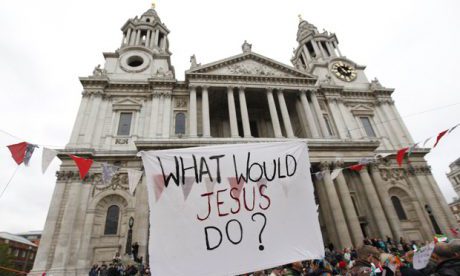Given that he was a member of the famously ascetic Franciscan order with his own reputation for detachment from worldly things, Bernardine of Siena (1380–1444) was remarkably insightful about money.
Most people are understandably surprised to learn that some of the important intellectual developments that first enabled finance to become an engine of growth were made by men who had, for the most part, freely taken vows of poverty.
Almost a century before Bernardine, another Franciscan, Peter Olivi (1248–1298), had written the following in his De contractibus usurariis:
“For since money or property which is directly managed by its owner is put to work for a certain probable gain, it not only has the simple quality of money or goods, but, even beyond that, a certain seminal quality of generating profit, which we commonly call capital … and therefore not only does the simple value of the object have to be returned, but also an added value.”
Like all medieval clergy, Olivi and Bernardine fiercely opposed usury. “Usury,” Bernardine wrote, “concentrates the money of the community in the hands of a few, just as if all the blood in a man’s body ran to his heart and left his other organs depleted.”
Yet the same Bernardine also invested time in explaining why it was legitimate for creditors to charge interest on loans to compensate themselves for relinquishing the opportunity to invest their money elsewhere. In such circumstances, the lender had a right to be compensated for what amounted to foregone profits.
“What,” Bernardine maintained, “in the firm purpose of its owner is ordained to some probable profit has not only the character of mere money or a mere thing, but also beyond this, a certain seminal character of something profitable, which we commonly call capital.” Continue reading
Sources
Additional readingNews category: Features.




